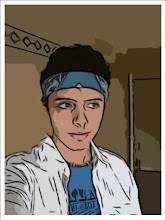In laymen’s terms, film as a medium is the manifestation of theories; and therefore is a practice. Theory being a body of ideas or principles, and practice being any active usage of a theory.
Now that I’ve cut right through the baloney, I’m going to natter about the theories and subtext behind Jim Jarmush’s Coffee and Cigarettes. Alas, I must shun Jan Svanmejer’s Food, for it piqued my gag reflex more so than it did my interest.
I watched Coffee and Cigarettes no longer than one week prior to the screening of several clips from the film on Thursday 13th January. I really enjoyed observing the conversations and interactions on show, because due to the mise-en-scène being quite minimalist, the social relations were the most significant aspect of the movie. The communication, both verbal and physical, provided wit, charm and intrigue.
There were, however, two key props running throughout the course of the movie. Can you guess what they were?
Correctamundo, they were coffee and cigarettes. Two commodities which many of the characters desire and even need, and which shape the interactions greatly. The opening vignette, featuring Steven Wright and Roberto Benigni, is perhaps one of the most notable examples. Their encounter appears to be somewhat serendipitous and fairly unlikely, and it is indeed coffee and cigarettes that shape the very fabric of their meeting. Benigni is portrayed as a caffeine junky, having ordered several espressos and by shaking like a vibrating bed. Steven Wright spouts the to-be-recycled line about drinking coffee before bedtime. This is then thrown into an addictive conversational mixture that also includes a barmy idea regarding coffee popsicles and the discussion of smoking habits. In a relatively short scene, we see how coffee and cigarettes provide a true nucleus to an encounter that in many other contexts could be tepid at best.
Even when coffee is partly substituted for herbal tea, like in the Delirium story, the shorts are constant and inextricably linked. In the mentioned vignette, the commodities form the conversations, such as the discussion of the benefits of herbal tea and alternative medicine. As with many of the other shorts, there are quirks and amusements on show, most notably the unexplained oddity of Bill Murray hiding out as a waiter.
Overall, I’d say this is a fantastic series of films that effortlessly bounce off each other. By the end, you crave even more (well, after a crafty fag and cup of coffee) as you truly appreciate the subtle eccentricities of regular, stripped down conversations. Moreover, it alerts you to the unsavoury habits and addictions you may not even realise you have.



